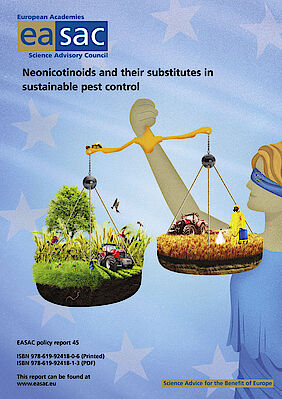


The European Academies' Science Advisory Council (EASAC) published in February 2023 the report “Neonicotinoids and their substitutes in sustainable pest control”. The report summarises the results of research in recent years and strengthens earlier conclusions in EASAC’s 2015 review on the wider ecosystem effects of neonicotinoids. Therefore it supports the continuation of existing restrictions and of measures to minimise future use - especially to mitigate the threat to future food security from the continued decline in insects (including pollinators).
This work builds on an earlier report by EASAC from April 2015: Ecosystem services, agriculture and neonicotinoids. The 2015 publication then stimulated reviews of the situation with these insecticides in other regions - starting with Africa: you can find the report here. And more recently Asia: you can read the report here.
Ultimately, concludes the EASAC report, Integrated Pest Management (IPM) needs to become the mainstream approach if the objectives of Europe's Green Deal are to be met. Evidence that IPM is not in conflict with food security is thus critical in persuading European Union Member States to support the European Commission’s proposals. In reducing the need for chemical fertilisers and plant protection products, IPM could improve agriculture’s resistance to supply shocks.